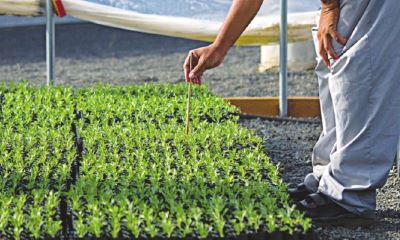Industry leaders want the government to help demystify the sector, facilitate adoption of new technologies and encouraging policies to accelerate growth

Agrochemical industry captains are highly vocal about their demands this time. Having raised the constraints across various platforms, they have now strongly called for the attention of the union government.
In this context, the ‘Conclave on Global Agrochemicals’ on November 03, 2022 highlighted the key constraints faced by the industry.
Industry captains who gathered on the sidelines of ‘India Chem 2022’, The 12th Biennial International Exhibition and Conference in New Delhi, spoke on a host of issues that they called roadblocks in the growth of agrochemicals business.
Lack of awareness
Despite agrochemicals being used in India for many years now, yet to achieve 50% penetration. It is imperative to educate farmers about the importance of using pesticides judiciously.
Counterfeit products
One of the concerns of proliferation of duplicate business is a higher rate of GST of 18%. Innocent farmers don’t take the bill and are likely to get cheated through purchase of counterfeit products.
Dealing with misinformation
The ever-increasing misinformation campaign against agrochemicals is harming the prospects of the industry. It needs to be dealt with massive awareness campaigns.
Regulatory challenges
Complex, time consuming and investment heavy registration process is a big discouragement for the industry. This limits the registration of new molecules to only big companies, thus unfair to SMEs.
High reliance on generic molecules
Low adoption of improved specialty molecules due to unaffordability and awareness. Preference is more towards time tested generic molecules.
Lack of R& D and product pipeline
High costs of doing research and development and complex registration process limiting improved products in the market.
Low usage of agrochemicals
With only 0.6 kilogram per hectare. Agrochemical usage is around 6 times lower than average use in Asia and 4 times lower than world average
Those who spoke on the behalf of industry included RG Agarwal, Chairman, FICCI Crop Protection Committee & Group Chairman, Dhanuka Agritech; Vikram Shroff, Director, UPL; Natu M Patel, Chairman and Managing Director, Meghmani; Simon Thorsten Wiebusch, Executive Director, Bayer Cropscience & Country Division Head, Crop Science division of Bayer for India, Bangladesh, and Sri Lanka; Ankur Aggarwal, Managing Director, Crystal Crop Protection; and Katsuyoshi Tanabe, Senior Manager, Agro Solutions Division, Mitsui Chemicals. Also present were Raju Kapoor, Director-Industry & Public Affairs, FMC India and N S Barhat, CMD, Aristo Biotech and Lifescience.
Action points for the government
• Ensure that farmers get quality agri inputs to nullify crop losses
• Fast-tracking mechanism to adopt new innovative technologies for reduction of yield gap
• Incentives for adoption of new sustainable technologies such as digitalization, drones, and green chemistry
• Implement scientific decisions related to pesticide industry
• Exploring the scope for biologicals and clarity on guidelines
• Promoting and widening the scope of exports of Indian pesticides
• Creation of pro-industry attractive environment with policy reforms
Assuring the industry, Narendra Singh Tomar, Minister of Agriculture & Farmers Welfare said that the government is committed to benefit the farmers through increase in agriculture productivity.
“The agriculture has to go beyond merely the availability of seeds and fertilizers. Working in silos doesn’t help anyone and rather we must develop collective thinking that will benefit both the industry as well as the nation,” said Tomar.
Bhagwanth Khuba, Minister of State, Ministry of Chemicals & Fertilizers and Minister of State said, “We have to acknowledge that there is a need to change with the time and adopt new technologies and create skilled resources. At the same time, we have to strike a balance between use of pesticides and the environment. We are working with agrochemical associations towards that.”
“Regulations are necessary for overseeing the correct dosage of pesticides and their judicious use. Integrated pest management has emerged as a solution. Quality input to farmers is necessary and it can be promoted through cooperatives. At the same time, industry needs an image makeover and sustainability has to be a target,” said Manoj Ahuja, Secretary, Department of Agriculture & Farmers Welfare.
Subscribe to our newsletter & stay updated.